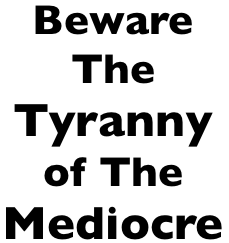
 Last year 95% of Americans couldn't find Sudan on a map if it was outlined in yellow highlighter. Today millions of T Shirts cry out to "Save Darfur". People who never protested the US invasion of Iraq, are suddenly marching in the streets "demanding" we send troops to Darfur.
Last year 95% of Americans couldn't find Sudan on a map if it was outlined in yellow highlighter. Today millions of T Shirts cry out to "Save Darfur". People who never protested the US invasion of Iraq, are suddenly marching in the streets "demanding" we send troops to Darfur.Why is the Israel Lobby leading the "Save Darfur" campaign? Was this "humanitarian" crisis engineered / allowed to happen, to justify another occupation of an oil rich country controlled by brown people?
Is the Left tricking liberals into doing to Africa what the Right is doing to the Middle East?
From counterpunch:
 Of major media, only the BBC has said at all clearly that Khartoum's resistance to "peacekeepers" was based on "well-founded fears of the designs of Western governments on Sudan." Meanwhile self-styled US peace groups and the Israeli lobby urge "Out of Iraq and into Darfur!
Of major media, only the BBC has said at all clearly that Khartoum's resistance to "peacekeepers" was based on "well-founded fears of the designs of Western governments on Sudan." Meanwhile self-styled US peace groups and the Israeli lobby urge "Out of Iraq and into Darfur!People honestly concerned about Darfur should listen to the calm common sense of Alex de Waal, a fellow of the Global Equity Initiative at Harvard, an advisor to the African Union, and author of "Darfur: A Short History of a Long War":
 "I don't believe there is a military solution. It will not defeat the holdout rebel groups. What it will do is, it will kill more people, create more hunger, create more displacement and make the situation even more intractable ... I think the key thing to bear in mind is that the solution to Darfur is a political solution. No solution can be imposed by any amount of arm twisting, any amount of bluster, any amount of military force. Even if we sent 100,000 NATO troops, we would not be able to impose a solution. The solution has to come through political negotiation."
"I don't believe there is a military solution. It will not defeat the holdout rebel groups. What it will do is, it will kill more people, create more hunger, create more displacement and make the situation even more intractable ... I think the key thing to bear in mind is that the solution to Darfur is a political solution. No solution can be imposed by any amount of arm twisting, any amount of bluster, any amount of military force. Even if we sent 100,000 NATO troops, we would not be able to impose a solution. The solution has to come through political negotiation." But by mobilizing the cover story of humanitarian intervention, the Bush administration should be able to introduce a military solution to its real problem: how to attack another country on the Neocon hit list, another country (like Serbia) on the concentric circle around the cynosure of US foreign policy, Middle East energy resources.
But by mobilizing the cover story of humanitarian intervention, the Bush administration should be able to introduce a military solution to its real problem: how to attack another country on the Neocon hit list, another country (like Serbia) on the concentric circle around the cynosure of US foreign policy, Middle East energy resources.














































































































No comments:
Post a Comment